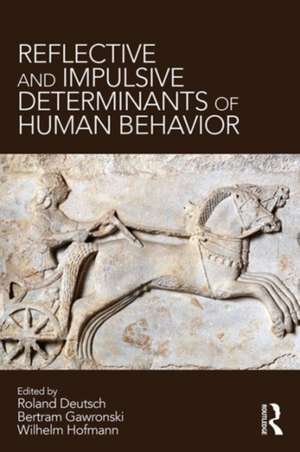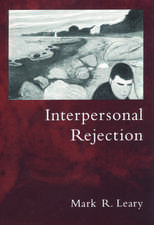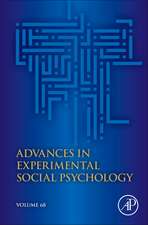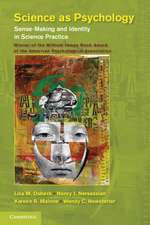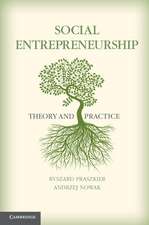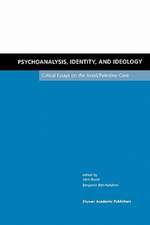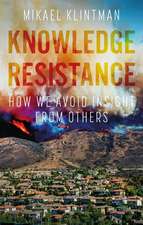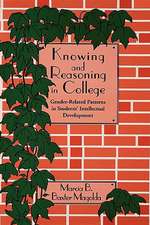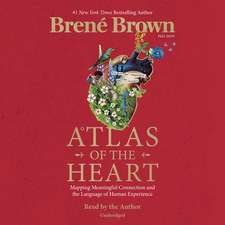Reflective and Impulsive Determinants of Human Behavior
Editat de Roland Deutsch, Bertram Gawronski, Wilhelm Hofmannen Limba Engleză Paperback – 6 sep 2016
Conflicts between the "head" and the "heart" are very common in everyday life. Over the past decade, research on such self-regulatory conflicts has been strongly shaped by Strack and Deutsch s 2004 Reflective-Impulsive Model (RIM). The award-winning theory integrates cognitive, affective, and motivational influences on overt behavior, offering a domain-independent framework that is applicable to wide range of social and non-social phenomena. This book provides a state-of-the-art overview of research under the framework of the RIM. Its 15 chapters provide an overview of basic principles of behavior determination, showcase the RIM s integrative and predictive power in many cross-cutting areas of inquiry, and illustrate the value of the theory for understanding the fundamental role of reflective and impulsive processes in various applied domains.
Expanding on an introduction that discusses the significance of the RIM from a historical view, the book is divided into three major sections. The first section covers basic psychological principles within the RIM, including selective accessibility, embodiment, associative and propositional operations, and implementation intentions. The second section reviews the integrative and predictive power of the RIM in many cross-cutting areas of inquiry, including intuition, attitudes, self-control, and personality. Finally, the third section showcases the generative power of the RIM in various applied areas, including research on health behavior, addiction, anxiety, economic behavior, sexual behavior, and aggression. In its entirety, this volume provides an indispensable resource for any scholar interested in the psychological underpinnings of reflective and impulsive behavior in various areas of inquiry. "
| Toate formatele și edițiile | Preț | Express |
|---|---|---|
| Paperback (1) | 424.71 lei 6-8 săpt. | |
| Taylor & Francis – 6 sep 2016 | 424.71 lei 6-8 săpt. | |
| Hardback (1) | 1110.74 lei 6-8 săpt. | |
| Taylor & Francis – 16 sep 2016 | 1110.74 lei 6-8 săpt. |
Preț: 424.71 lei
Preț vechi: 499.66 lei
-15% Nou
81.27€ • 85.08$ • 67.24£
Carte tipărită la comandă
Livrare economică 05-19 aprilie
Specificații
ISBN-10: 1138696889
Pagini: 280
Dimensiuni: 152 x 229 x 18 mm
Greutate: 0.39 kg
Ediția:1
Editura: Taylor & Francis
Colecția Routledge
Locul publicării:Oxford, United Kingdom
Cuprins
- Reflection and Impulse: A Framework for Basic Research and Applied ScienceRoland Deutsch, Bertram Gawronski, Wilhelm Hofmann
I. Basic Principles - Reflections on Comparison: The Selective Accessibility MechanismThomas Mussweiler, Corinna Michels, Alexa Weiss
- Manual and Facial Approach and Avoidance Behavior: Flexible and Inflexible Links to AffectRoland Neumann, Julia Kozlik
- Associative and Propositional Processes from the Perspective of the Reflective-Impulsive ModelRoland Deutsch
- From Thought to Automatic Action: Strategic and Incidental Action Control by If-Then PlanningTorsten Martiny-Huenger, Maik Bieleke, Gabriele Oettingen, Peter M. Gollwitzer
II. Cross-Cutting Perspectives - Flotsam on the Shore of Ignorance – Towards a Definition of IntuitionSascha Topolinski
- The Associative-Propositional Duality in the Representation, Formation, and Expression of AttitudesBertram Gawronski, Skylar M. Brannon, Galen V. Bodenhausen
- Passion versus Reason: Impulsive and Reflective Determinants of Self-Control Success and FailureWilhelm Hofmann, Malte Friese
- Dual Process Approaches to PersonalityMitja D. Back, Steffen Nestler
III. Applications - Health Behavior and the Reflective-Impulsive ModelMartin Hagger
- Reflective and Impulsive Processes in Addiction and the Role of MotivationReinout W. Wiers, Thomas E. Gladwin
- Integrating the Reflective-Impulsive Model with Cognitive-Behavioral Therapy for Anxiety DisordersAllison Ouimet
- Economic Behavior and the Reflective-Impulsive DualityCarlos Alós-Ferrer
- Sexual BehaviorMichael Häfner, Kai Epstude
- Aggression from the Perspective of the Reflective-Impulsive Model: Testing Predictions Using Indirect Measures
Notă biografică
Bertram Gawronski, PhD, is Professor of Psychology and David Wechsler Regents Chair at the University of Texas at Austin. His research investigates the mental underpinnings and behavioral consequences of spontaneous and deliberate evaluations of objects, individuals, groups, and social issues.
Wilhelm Hofmann, PhD, is Professor of Social and Economic Cognition at the University of Cologne, Germany. His research is concerned with desire, self-control, and moral behavior, particularly the emergence of impulses and desires, the role of executive functioning in self-control and health behavior, and the connection between self-control, morality, and happiness.
Recenzii
-Norbert Schwarz, Provost Professor of Psychology and Marketing, University of Southern California
A valuable complement to other recent volumes dealing generally with dual-process models, this book specifically focuses on Strack and Deutsch’s RIM model. Authoritative chapters elucidate the model’s fundamental processes and important areas of application including health, addiction, and economic behavior.
-Eliot R. Smith, Distinguished Professor of Psychological and Brain Sciences, Indiana University
This volume is a homage to Fritz Strack, one of the most creative contemporary minds in social psychology and the creator of the versatile and integrative Reflective-Impulsive Model, which has evolved to become one of the most influential theoretical contributions to psychology.
-Gün R. Semin, Research Professor of Psychology and Director of the William James Center for Research, Instituto Universitário de Ciências Psicológicas, Sociais e da Vida
Descriere
Conflicts between the "head" and the "heart" are very common in everyday life. Over the past decade, research on such self-regulatory conflicts has been strongly shaped by Strack and Deutsch s 2004 Reflective-Impulsive Model (RIM). The award-winning theory integrates cognitive, affective, and motivational influences on overt behavior, offering a domain-independent framework that is applicable to wide range of social and non-social phenomena. This book provides a state-of-the-art overview of research under the framework of the RIM. Its 15 chapters provide an overview of basic principles of behavior determination, showcase the RIM s integrative and predictive power in many cross-cutting areas of inquiry, and illustrate the value of the theory for understanding the fundamental role of reflective and impulsive processes in various applied domains.
Expanding on an introduction that discusses the significance of the RIM from a historical view, the book is divided into three major sections. The first section covers basic psychological principles within the RIM, including selective accessibility, embodiment, associative and propositional operations, and implementation intentions. The second section reviews the integrative and predictive power of the RIM in many cross-cutting areas of inquiry, including intuition, attitudes, self-control, and personality. Finally, the third section showcases the generative power of the RIM in various applied areas, including research on health behavior, addiction, anxiety, economic behavior, sexual behavior, and aggression. In its entirety, this volume provides an indispensable resource for any scholar interested in the psychological underpinnings of reflective and impulsive behavior in various areas of inquiry. "
